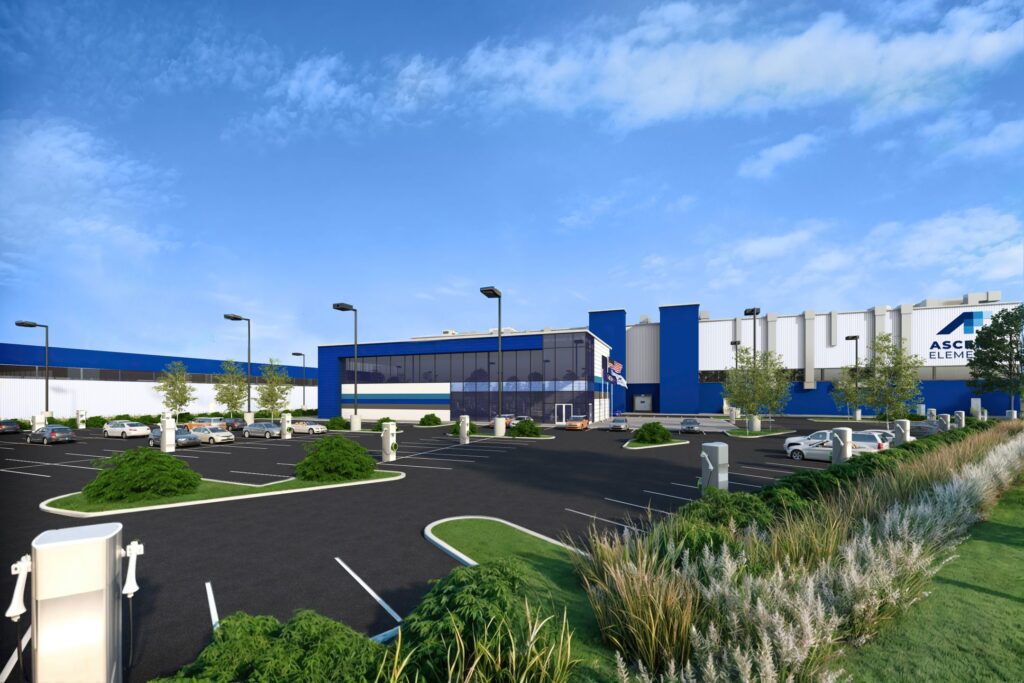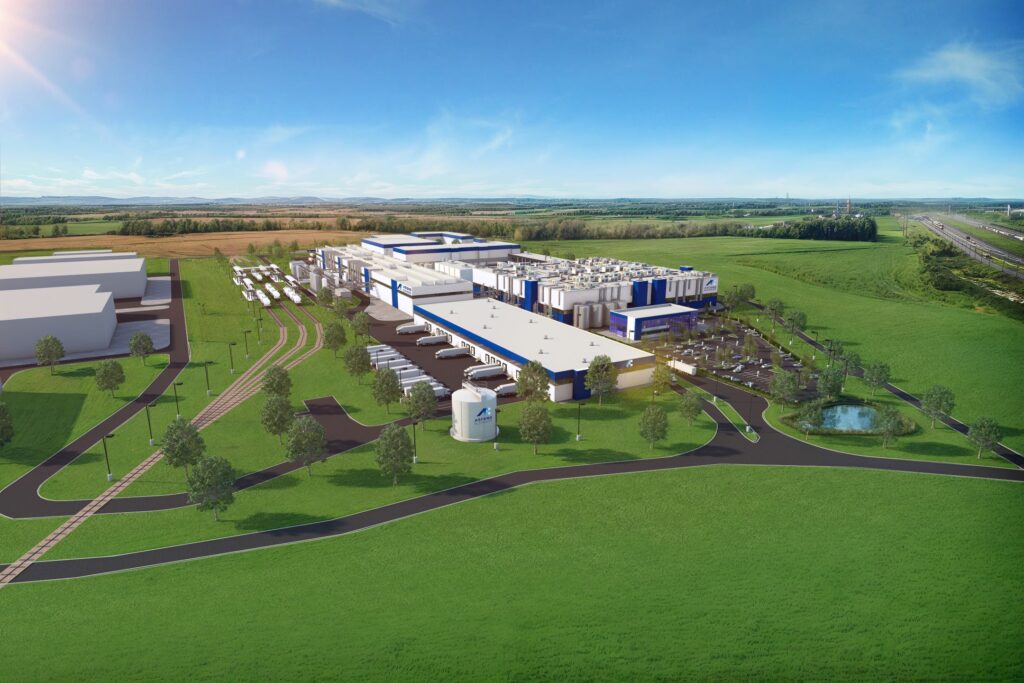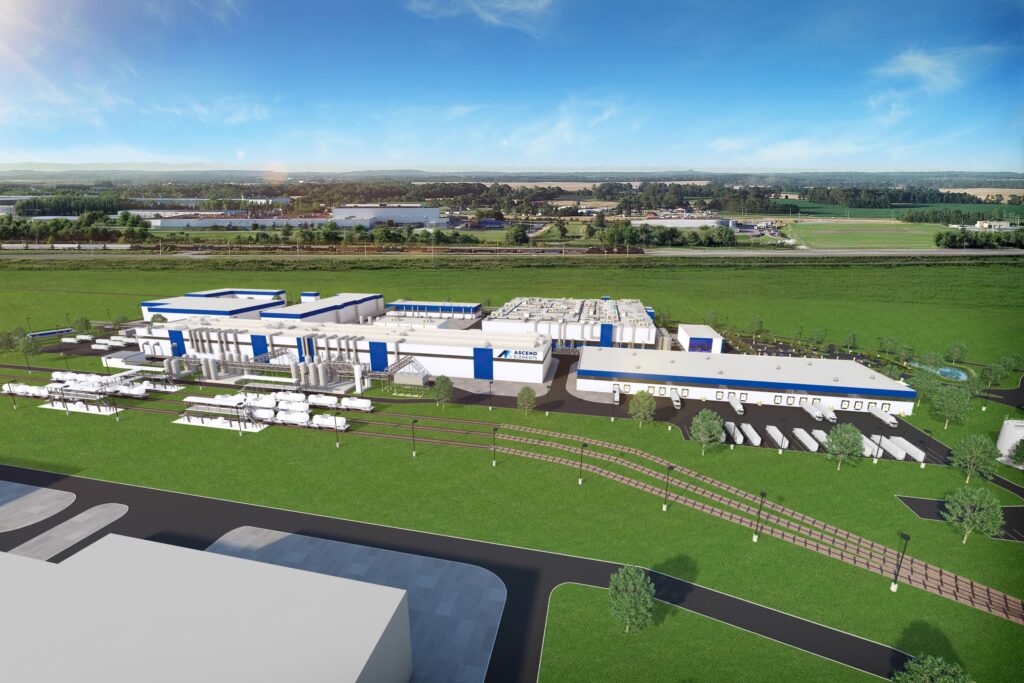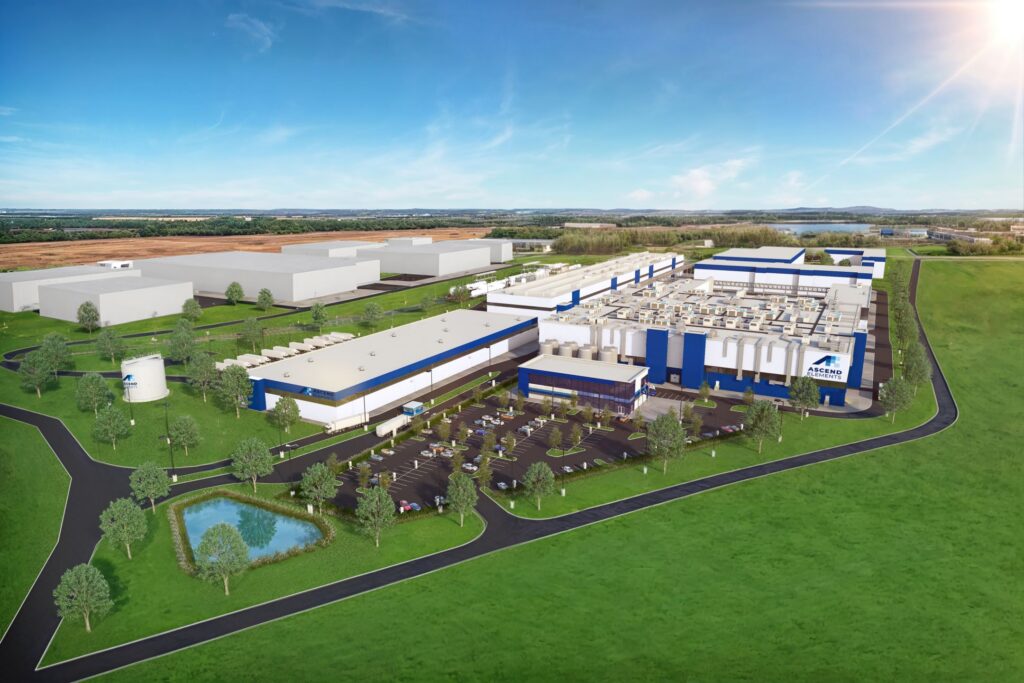As construction of America’s first commercial-scale pCAM manufacturing plant continues, our engineers and artists are re-imagining the future state of the 150-acre campus.
Located in Hopkinsville, KY, the Apex 1 facility will be home to Ascend Elements’ patented Hydro-to-Cathode® direct precursor synthesis technology. The facility will employ approximately 400 team members and contain over 1 million square feet of advanced manufacturing space. Commercial-scale production of decarbonized pCAM material is on track to begin in early 2025.

The Apex 1 facility will be powered by renewable energy and produce 27kT of decarbonized pCAM per year in 2026. The Apex 1 campus will eventually produce enough pCAM and CAM to equip up to 750,000 electric vehicle battery packs per year.

Ascend Elements uses a patented process known as Hydro-to-Cathode® direct precursor synthesis to manufacture NMC pCAM and CAM from used lithium-ion batteries and battery manufacturing scrap. The closed-loop process eliminates up to 15 intermediary steps in the traditional cathode manufacturing process and provides significant economic and carbon-reduction benefits. A recent life cycle assessment conducted by an independent third-party found Ascend Elements’ Hydro-to-Cathode® process produces EV battery cathode material at a 49% reduction in carbon emissions compared to traditional cathode manufacturing processes. By 2030, the company aims to achieve a 90% reduction in carbon footprint for its decarbonized cathode products.


